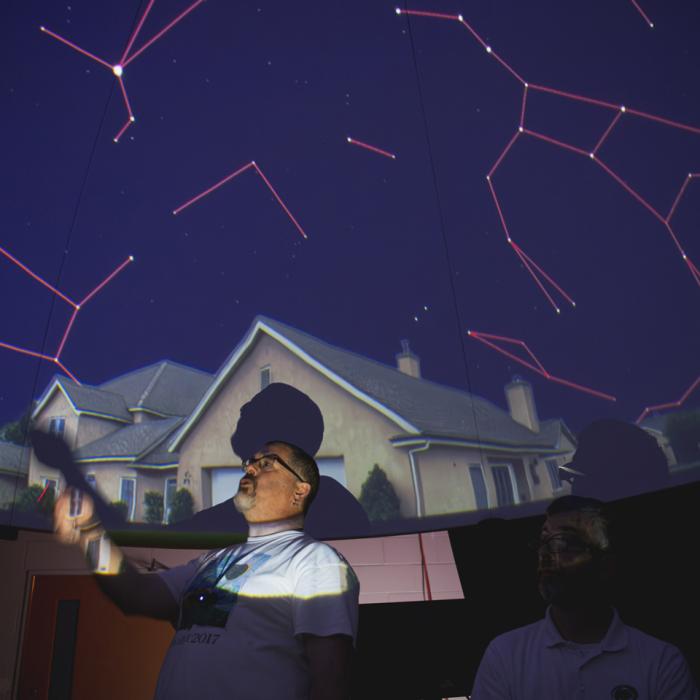Penn State Planetarium
The Department of Astronomy and Astrophysics at Penn State has a small planetarium (15-foot dome) at our University Park campus that can seat approximately 25-30 visitors. We offer planetarium shows year round to visiting K-12 classes and some community groups (for example, scouts and summer camps). Our planetarium is staffed by student and faculty volunteers and the shows are free of charge.
Each show is typically 25-45 minutes long. We often accompany the planetarium show with another activity, such as a classroom activity where we model as a group the reason for the seasons on Earth, simulate the phases of the Moon, or observe the spectra of various elements in gas form.
The total time for the show and activity is one hour.
These programs can only be scheduled during open time slots between Penn State classes. We do our best to accommodate every group, but we may not be able to schedule your group in your first choice of time slot, so please be prepared to give 2 or 3 possible times when you would like to visit.
To schedule a show, please use our Field Trip Request Form.
For more information, please contact: astro_outreach@psu.edu
Please note: We do not currently offer shows for groups of children younger than kindergarten age. Also, we do not currently offer shows to private groups besides the exceptions noted above. However, our planetarium is open to the community during AstroFest (mid-July) and the Penn State Parents and Families Night (early fall).
Additionally, please note that the contact information and request form on this page are only for requesting visits to Penn State University Park. If you are interested in visiting one of the other campuses in the Penn State system for an astronomy program, please visit the website of that campus to find contact information for that campus. Another contact for astronomy outreach programs in the Penn State system is: Jim Gavio, Penn State Behrend planetarium director, jvg10@psu.edu, 814-898-7268
Penn State has one of the most productive astronomy research programs in the country that explores a wide variety of observational, experimental, and theoretical projects. We also teach more undergraduate astronomy credit-hours than any U.S. university and are constantly pursuing cutting-edge technology and teaching methods.
More than 60 faculty researchers and educators and a dozen faculty members from other departments and colleges at Penn State pursue greater understanding of our universe. Areas of investigation include exoplanets, observational and theoretical cosmology, gravitational radiation, space and ground-based instrumentation, supermassive black holes, brown dwarfs, astrostatistics, and high energy astrophysics.
Astronomy and Astrophysics Research

Thank you for your interest: Please stay up to date on our immersive theatre progress

Join us in this research and teaching exploration


